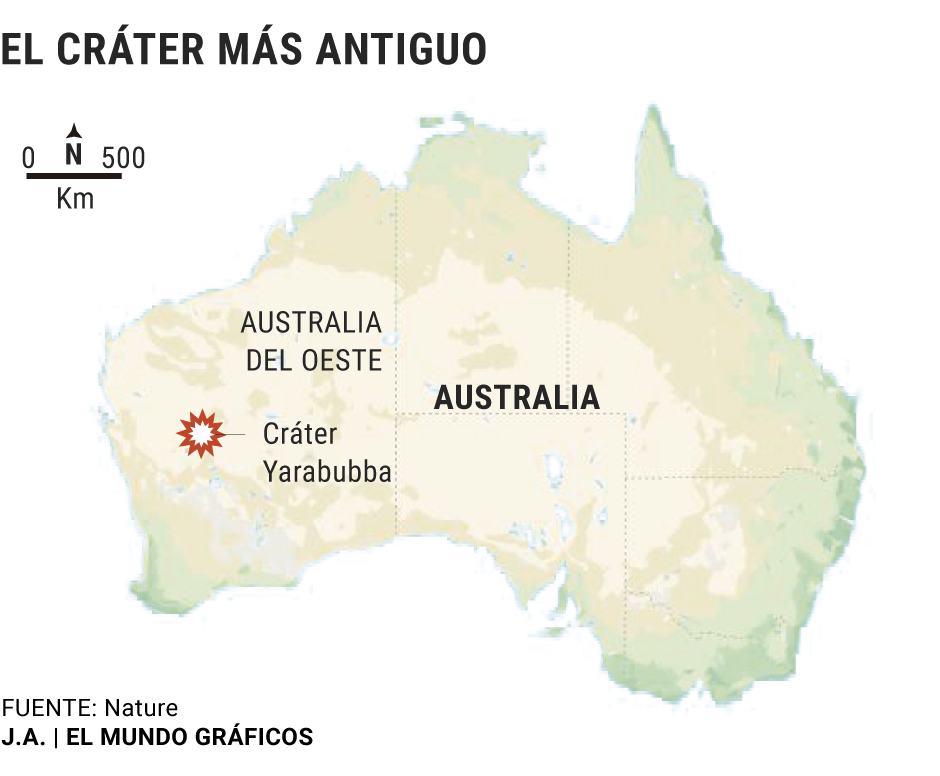- With radar, they discover another possible giant crater under the Greenland ice
- New study: Dinosaurs became extinct by a meteorite and not by a volcanic eruption
The Earth has suffered the impact of meteorites since it was formed, about 4.5 billion years ago. The traces of some of the craters that opened are still preserved, even if they have spent a lot of time. The oldest of those discovered so far was formed in Western Australia 2,229 million years ago , that is, when the Earth is half as old as it is now. They know it thanks to the analysis of the minerals found in Yarrabubba, where a large asteroid fell that should have formed a crater estimated at 70 kilometers in diameter.
The details of the dating, carried out by scientists from the University of Curtin, in Australia, and from NASA, are published this Wednesday in the journal Nature
Communications and place the crater of Yarrabubba, which was already considered one of the oldest but its exact age was unknown, as number 1 on the list. It fell 200 million years before the asteroid that formed the second oldest known crater.
In addition to offering dating (which has a margin of error of only five million years), the study notes that the impact of this asteroid on a land area covered by ice caused an enormous amount of ice to vaporize in the atmosphere . Scientists estimate that it released half a billion tons of water vapor into the atmosphere, a greenhouse.
Weather altered
According to Nicholas Timms, co-author of the study, they believe that the fall of this meteorite altered the weather. Its impact coincided with the disappearance of glacial deposits in that area now occupied by Australia, at the end of an era known as Global Glaciation.
Scientists believe that the earth's surface retains other craters that have not yet been discovered because they are in remote areas or covered by ice. Thanks to the radars, in Greenland they have discovered in the last year two, of 36 and 31 km in diameter respectively although their age has not been able to be dated exactly. Now they expect to discover craters perhaps as old as Yarrabubba's.
According to the criteria of The Trust Project
Know more- Science and Health
- science
- Graphics
Climate crisis The rise in temperatures in the oceans sets a new record in 2019
Energy The revolution of green mosques
Science Pedro Duque promises "reasonable" increases in science budgets

